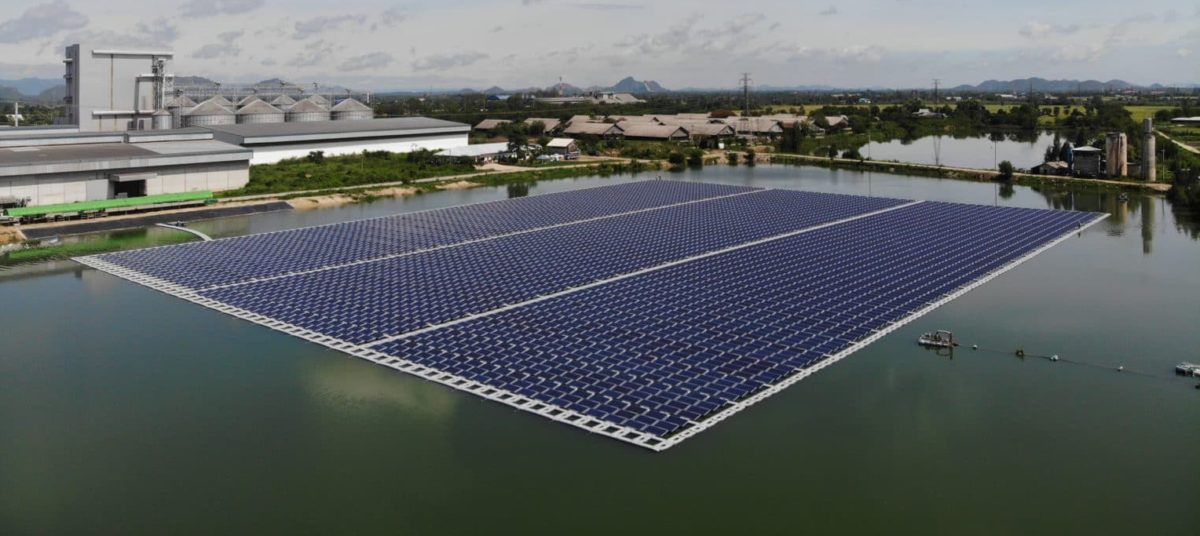The German government will fund a research project to explore the economic potential of installing floating solar on the open-pit lakes left behind by lignite mining.
With project partner the Fraunhofer Institute for Solar Energy Systems ISE estimating technical potential in the mid double-digit gigawatt range from the 500 or so such bodies of water in Germany, the RWE Renewables clean energy developer arm of the German energy company will incorporate the results of a three-year testing period to help evaluate the generation potential of such sites in its domestic market and worldwide.
The German developer will also select the open-pit lake upon which Dutch installer Volta Solar will help construct four floating arrays, with a nearby, ground-mounted reference array included in the study. Each of the arrays will have a generation capacity of 30 kWp, a spokesperson for the Fraunhofer ISE told pv magazine this afternoon.
The Fraunhofer release said the PV2Float study, financed by the German Federal Ministry for Economic Affairs and Energy, would evaluate the technical requirements of installing solar on such water surfaces, their economic viability, their ecological effects, and their acceptance by the public.
Popular content
With German manufacturer Heckert Solar to supply “innovative PV module concepts” to the project, according to Fraunhofer ISE, the research body will conduct durability studies on the installations, and further develop modules as necessary. Fraunhofer staff will also examine floating PV regulation in Germany, drive participation by local stakeholders in the project, and investigate the business case of the floating systems.
Another project partner, the Brandenburg University of Technology Cottbus-Senftenberg, along with Dresden-based geo and hydroscientific center the Institut für Wasser und Boden Dr Uhlmann, will investigate the ecological effects of floating solar systems.
This content is protected by copyright and may not be reused. If you want to cooperate with us and would like to reuse some of our content, please contact: editors@pv-magazine.com.



5 comments
By submitting this form you agree to pv magazine using your data for the purposes of publishing your comment.
Your personal data will only be disclosed or otherwise transmitted to third parties for the purposes of spam filtering or if this is necessary for technical maintenance of the website. Any other transfer to third parties will not take place unless this is justified on the basis of applicable data protection regulations or if pv magazine is legally obliged to do so.
You may revoke this consent at any time with effect for the future, in which case your personal data will be deleted immediately. Otherwise, your data will be deleted if pv magazine has processed your request or the purpose of data storage is fulfilled.
Further information on data privacy can be found in our Data Protection Policy.